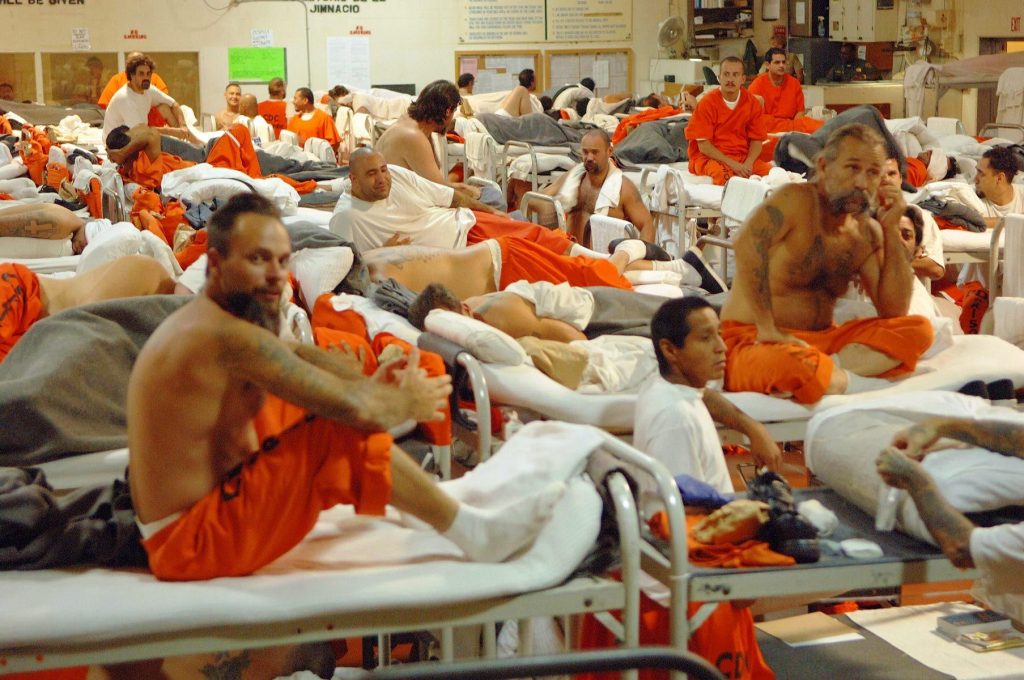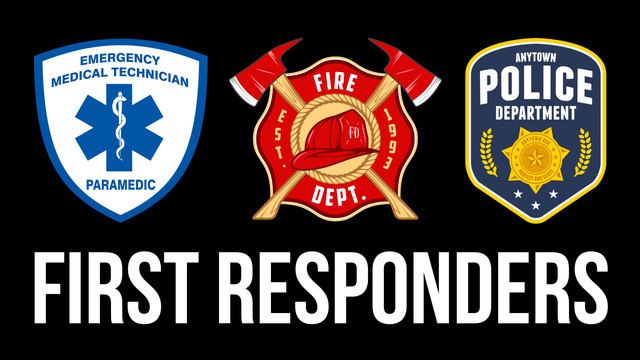This post is from Joe Broadmeadow — retired Police Captain of the East Providence, Rhode Island, PD and now highly-respected crime writer.
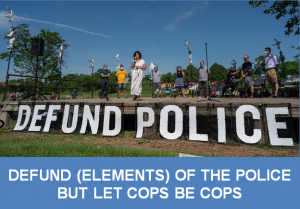 The movement toward defunding or, in the extreme, eliminating the police has a fundamental logic to it. Although I’m certain many proponents miss the point because they are caught in the fog of emotion. There are public funds allocated to police departments that could be better directed to other programs. Some of my suggestions will be met with outrage, but the simple fact is the most effective departments are those who let cops BE cops. They catch bad guys (in the universal, non-gender specific way.)
The movement toward defunding or, in the extreme, eliminating the police has a fundamental logic to it. Although I’m certain many proponents miss the point because they are caught in the fog of emotion. There are public funds allocated to police departments that could be better directed to other programs. Some of my suggestions will be met with outrage, but the simple fact is the most effective departments are those who let cops BE cops. They catch bad guys (in the universal, non-gender specific way.)
Changing police departments without keeping this fundamental truth in mind is Utopian idiocy. These foolish experiments with “autonomous” zones excluding the police are living examples of the Lord of the Flies phenomenon. They will fail, and innocent people will suffer and die amid the anarchy.
Let me state a universal truth.
As long as there are humans, there will be bad guys and the need for those brave enough to stand between them and society.
If one is rational enough to understand this point, then certain corollaries follow. We can no more eliminate the police than we can stop burning fossil fuel without a realistic alternative. But we can get back to basics with police departments. Refocus them on their core functions, and reallocate resources to other services more suited to social welfare agencies.
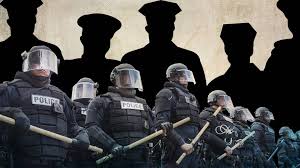 Over the last few decades, there have been several divergent trends within law enforcement. One toward militarization and one toward a “touchy-feely” gentleness. Neither added to the elemental function nor improved the effectiveness of police departments.
Over the last few decades, there have been several divergent trends within law enforcement. One toward militarization and one toward a “touchy-feely” gentleness. Neither added to the elemental function nor improved the effectiveness of police departments.
Starting back in the days of the Law Enforcement Assistance Administration, the federal government offered surplus military equipment to police departments.
I recall the glee among many of my fellow officers, including me, over this bonanza of toys. M-16 rifles, night-vision equipment, armored personnel carriers, and more. We thought this was the coolest thing in the world. I mean, come on. Is there anything better than firing automatic weapons and seeing in the dark?
To make it even more palatable, President Reagan reinvigorated the War on Drugs. We had the stuff, we had the war, all we needed was an enemy. Like all wars, most casualties were civilians. We tried to arrest our way out of a health crisis. If you think someone who would steal from their grandmother to buy heroin gave any thought to being caught by the police, you are remarkably naive.
Then, we came up with mandatory sentences, three-strike laws, and asset forfeiture statutes. All well-intentioned, like the proverbial road to hell. The net result? We turned whole swaths of society into convicts and filled our prisons with society’s most disadvantaged.
No one embraced the concept of the war on drugs more than me, and the many officers I worked with. But most cops are an intuitive bunch. We came to see the fallacy and contradiction in what we were doing. Like the war in Vietnam, we had to destroy the village to save it. We lost the enthusiasm for a failed policy.
Back then, no one made the connection that turning police departments, at least in appearance, into what were essentially armies of occupation was a dangerous thing. They held entire training conferences teaching agencies what language to use in the applications.
No one questioned the wisdom or consequences.
These programs were followed by the COPS Grant program, designed to put more officers on the street through technology. And there were others. Each had, what seemed, a logical and beneficial purpose.
In parallel with these programs, a kinder and gentler approach took hold. The Drug Abuse Resistance Education (DARE) program rose to prominence in Los Angeles and spread across the country. Community Policing quickly followed on the heels of DARE.
The problem was, in many agencies, these programs became specialized units rather than philosophical changes.
DARE put cops in schools as teachers when most lacked a fundamental understanding of educational theory. No matter how well-intentioned, DARE would prove marginally effective, if at all. Studies show contradictory results from DARE training. One five-year study showed no significant results between schools implementing DARE programs and those that did not.
https://www.pbs.org/wgbh/pages/frontline/shows/dope/dare/effectiveness.html
Community policing, one of the most promising of all the “New Age” programs, had the most potential. Police Departments formed “Community Policing Units” as a way of embracing this new paradigm. This presented a contradiction to the purpose of the philosophy. Community policing is not a thing, not a specialization like CSI or Homicide investigations. To treat it as such is to hobble the beneficial effect.
 Community Policing is a philosophy, a paradigm, and a practice to be ingrained within an agency’s approach to police work. But many issues addressed by community policing are better handled by other agencies. In some agencies, Community Policing became little more than a central collection point of information about quality of life issues—loud congregations of youths, trash on the streets, burned-out streetlights, noisy business establishments, road maintenance. The officers then referred this information to the responsible agency. It drew personnel away from the core function of the police. That is not what cops—by training or design— are best suited to do.
Community Policing is a philosophy, a paradigm, and a practice to be ingrained within an agency’s approach to police work. But many issues addressed by community policing are better handled by other agencies. In some agencies, Community Policing became little more than a central collection point of information about quality of life issues—loud congregations of youths, trash on the streets, burned-out streetlights, noisy business establishments, road maintenance. The officers then referred this information to the responsible agency. It drew personnel away from the core function of the police. That is not what cops—by training or design— are best suited to do.
Once again, a well-intentioned program clouding the fundamental responsibilities of cops. As a matter of normal course of operations, cops should pay attention to such issues. Small annoyances can escalate into major problems. While the “broken window” theory of law enforcement is largely discounted, an element of its validity persists. Focusing on the small things before they become major issues works.
Community Policing drew personnel away from the core function of the police with limited beneficial improvement to the community. The reality is, all policing is intended toward protecting the community. Crime prevention through police presence, apprehending criminals, suppressing disturbances, responding to accidents, all take place within the community.
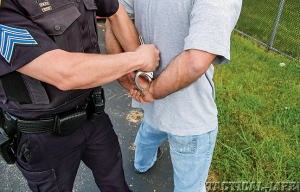 Attitudes and expectations, both by the police and by the community, need to change. The cops are not the enemy, and the community is not the problem. Community Policing should comprise merging the responsibility of both the community and the police into a partnership to catch bad guys.
Attitudes and expectations, both by the police and by the community, need to change. The cops are not the enemy, and the community is not the problem. Community Policing should comprise merging the responsibility of both the community and the police into a partnership to catch bad guys.
There was once an effort to combine the functions of public safety, i.e., police, fire, ems, into a single agency. In theory, it seemed to make sense. Have those first on the scene cross-trained in all aspects of public safety.
https://www.law.berkeley.edu/files/What_Works_in_Community_Policing.pdf
In reality, it was a dismal failure.
When an EMT responds to a shooting, their focus needs to be on treating the victim. When the Fire Department responds to a fire, its focus needs to be on putting out the fire, rescuing individuals, and saving property.
When cops respond to these same incidents, an element of each comes into play—preserving life being the most important. But the officer must also focus on determining if a crime occurred, preserving evidence, and apprehending those who committed the crime. Differentiation and separation of responsibilities make all public safety operations more effective.
The problem is, in many cities and towns, the police are the agency of last resort. If the trash in the street is infested with rats, if the neighborhood bar blares music to all hours, if the kids on the corner block the way, cops are the simplest solution. If a homeless person, suffering from mental illness, is blocking the entrance to a business, call the police.
Even if they can only deal with the issue temporarily.
There is another, more sinister aspect to things police departments are tasked with performing. The enforcement of traffic laws—intended to save lives and prevent accidents—has become a source of revenue critical to state and municipal budgets. Every department in the country will say they do not mandate a quota for officers. Yet, most agencies use the number of tickets written as a measure of officer performance.
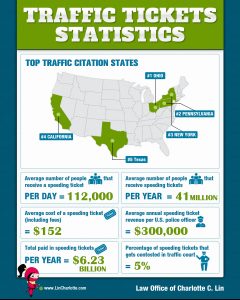 Like the contradiction in government warnings about the dangers of smoking and their dependency on the tax revenue from the sale of tobacco, police department generate revenue from tickets. It is a tax disguised as a public safety function.
Like the contradiction in government warnings about the dangers of smoking and their dependency on the tax revenue from the sale of tobacco, police department generate revenue from tickets. It is a tax disguised as a public safety function.
If one wants to understand the danger of such dependency on traffic ticket revenue by a municipal government, all one has to do is look at the level of traffic enforcement in Ferguson, MO. The shooting of Michael Brown wasn’t the reason for the unrest and riots in that city, it was the spark that lit the fuse.
The recent revolts across the country are not just because of unjustified police shootings of people of color. They are a reaction to a complex range of issues. Police departments are being forced to contend with many of these, mostly outside their control, and doing it poorly.
We wouldn’t send a carpenter to fix a plumbing problem, why do we expect cops to solve societal issues beyond their control or expertise?
Redirecting funds from police departments to social service agencies make sense. But this is a long-term strategy. We still need to deal with the practical realities of crime. Cops prevent, investigate, and solve crimes. They apprehend bad guys. They should do so with professionalism within the confines of the law. Sometimes, this will involve the use of deadly force. We can set our sights on eliminating that necessity someday. However, we still need to have cops being cops for the foreseeable future.
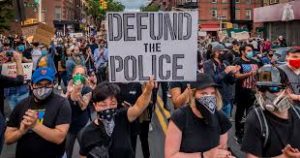 Before we rush headlong into such irrational actions of disbanding the police. Before we just slash and cut police budgets to satisfy an incensed, but uninformed public. Before we commit ourselves in a rush to judgment to do something, anything, we need to step back and analyze what purpose police departments serve.
Before we rush headlong into such irrational actions of disbanding the police. Before we just slash and cut police budgets to satisfy an incensed, but uninformed public. Before we commit ourselves in a rush to judgment to do something, anything, we need to step back and analyze what purpose police departments serve.
The cops are not the adversaries of the public. This is not an us versus them situation. Cops are humans, subject to the same frailties and foibles as everyone else.
We need to let police departments get back to the fundamentals. We need to stop relying on the police as the agency of last resort in dealing with issues outside their skill set. We need to recognize the problems we face are all our responsibility, not just the police departments because they are a convenient 911 call away.
Let cops be cops. Not social workers, not teachers, not mental health providers, not counselors. Let cops do what they signed up to do, stand on the thin blue line, and catch bad guys.
* * *
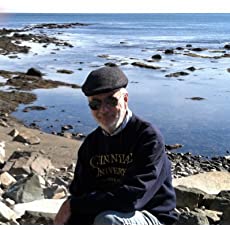 Joe Broadmeadow retired with the rank of Captain from the East Providence, Rhode Island Police Department after twenty years. Assigned to various divisions within the department including Commander of Investigative Services, he also worked in the Organized Crime Drug Enforcement Task Force and on special assignment to the FBI Drug Task Force.
Joe Broadmeadow retired with the rank of Captain from the East Providence, Rhode Island Police Department after twenty years. Assigned to various divisions within the department including Commander of Investigative Services, he also worked in the Organized Crime Drug Enforcement Task Force and on special assignment to the FBI Drug Task Force.
Joe is the author of seven books; three novels based on his experiences as a police officer, Collision Course, Silenced Justice, and A Change of Hate, a Y/A novel, Saving the Last Dragon, and three non-fiction books; Choices: You Make ’em You Own ’em written with Jerry Tillinghast, UnMade: Honor Loyalty Redemption written with Bobby Walason, and It’s Just the Way It Was: Inside the War on the New England Mob and other stories written with Brendan Doherty former superintendent of the Rhode Island State Police.
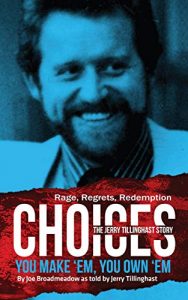 Joe also writes for two blogs, The Writing of Joe Broadmeadow (http://www.joebroadmeadowblog.com) and The Heretic and the Holy Man (www.thehereticandtheholyman.wordpress.com) and as a guest columnist for the Providence Journal and GoLocalProv.com.
Joe also writes for two blogs, The Writing of Joe Broadmeadow (http://www.joebroadmeadowblog.com) and The Heretic and the Holy Man (www.thehereticandtheholyman.wordpress.com) and as a guest columnist for the Providence Journal and GoLocalProv.com.
When Joe is not writing, he is hiking or fishing (and thinking about writing). Joe completed a 2,185-mile thru-hike of the Appalachian Trail in September 2014. After completing the trail, Joe published a short story, Spirit of the Trail, available on Amazon.com in Kindle format.
Joe lives in Rhode Island with his wife Susan.
This piece by Joe Broadmeadow originally appeared on Joe’s personal blog. Here’s the link:
Visit Joe Broadmeadow’s Amazon Page.
Follow Joe Broadmeadow on Twitter.
Connect with Joe Broadmeadow on Facebook.

